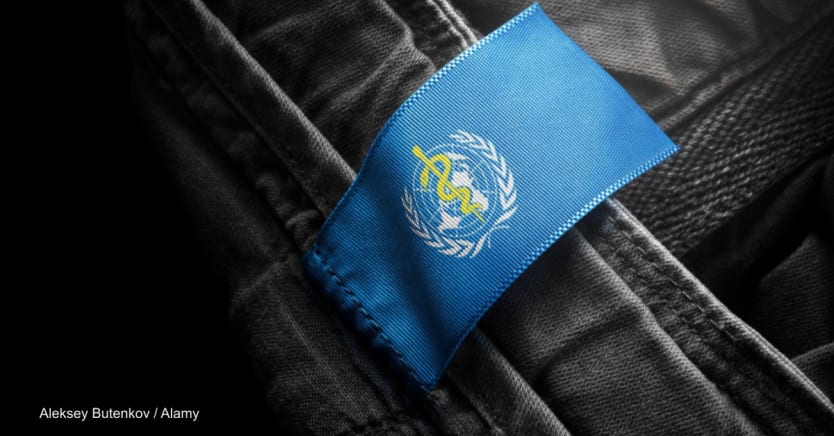Countries ask WHO to scale up reforms on sexual exploitation and abuse

Member states of the World Health Assembly have called on the World Health Organization to heighten its efforts to prevent and respond to sexual exploitation and abuse.
The calls come in the aftermath of harrowing allegations that emerged in 2020 of widespread sexual abuse and exploitation during the 2018-2020 Ebola outbreak in the Democratic Republic of Congo, including accusations that WHO personnel and contractors exchanged sex for jobs and forced abortions on those who became pregnant.
UN rapporteurs say WHO failed DRC sexual abuse victims
Three experts have sent a letter to the World Health Organization's chief saying the agency's response to sexual abuse and exploitation allegations in the Democratic Republic of Congo was inadequate.
The agency created an independent commision to examine the allegations, and it found that the acts amounted to sexual exploitation and abuse. It published a report in September 2021 documenting at least nine rapes and some 125 people who said they had been sexually exploited or abused by WHO personnel or contractors during the period.
Late last year, WHO developed a road map for operationalizing a “victim- and survivor-centered approach,” increasing staff training, expanding capacity, and rebuilding the culture at the agency.
The DRC investigation has been forwarded to the United Nations’ Office of Internal Oversight Services, and WHO is now waiting for it to complete the probe.
WHO presented a report to WHA countries gathered in Geneva that outlined the steps it has taken to improve the agency’s ability to prevent and respond to sexual harrassment, exploitation, and abuse. In a committee hearing this week, WHA members acknowledged the progress made in restructuring the organization but called for efforts to be ratcheted up.
Sexual exploitation and abuse continue “to persist at WHO, and more needs to be done to foster a culture and accountability for staff, management, and leadership; to strengthen reporting, oversight, and investigation mechanisms; and to apply a survivor-centered approach,” a delegate from the United States said during the committee hearing.
WHO has installed an Africa regional coordinator on the prevention of sexual exploitation and abuse, who started the job in March, and deployed five experts to high-risk countries across the continent. A delegate from WHO’s Africa office said 40% of the senior leadership for the region's emergency preparedness and response team is now female; a year ago, its ranks were completely male.
WHO has signed memorandums of understanding with the United Nations Population Fund and NGOs to provide assistance to victims in DRC, who are receiving psychosocial, financial, counseling, and social reintegration support, the Africa delegate said. Assistance is also available to those planning to seek legal recourse against perpetrators, and one person has already expressed interest in doing so, he added.
But these gains are fragile.
“Current funds allocated to WHO in the African region are clearly inadequate” to conduct the campaigns and training needed over the long term, the Africa delegate said.
For the first time, WHO now has a limit of 120 days to complete investigations — but if there is solid rationale, this time frame can be extended, said WHO Director-General Tedros Adhanom Ghebreyesus on Wednesday.
The agency is working through a backlog of sexual exploitation and abuse cases, said Lisa McClennon, WHO’s new head of investigations. She added that there is “movement” on the investigations into perpetrators in DRC but couldn’t provide a time frame for when these would be finalized.
The U.N. registers perpetrators to prevent their rehiring, and all of WHO’s staffers were checked against this database in December. But a WHA delegate from Ghana cautioned that the database must be coupled with “rigorous efforts” to investigate allegations.
A recent letter to Tedros from three U.N. rapporteurs said WHO had an “inadequate response” to the allegations. Among the criticisms was a failure to support criminal investigations in DRC, provide reparations to victims, and properly protect victims’ confidentiality. The investigation has also been marred by delays.
"We share many of the concerns expressed," a WHA delegate from Norway said in reference to the letter.
In this week’s committee hearing, the Geneva Group of Friends to Eliminate Sexual Harassment — composed of 56 member states and the European Union — expressed concern that WHO was not more forthcoming about the criticisms. The rapporteurs’ letter, which was sent to WHO in March, was only made public by the authors this week after the agency responded. The group asked for more frequent updates on reform efforts, echoing other requests from countries for better transparency.
A WHA delegate from Sweden said the country encourages “a financing solution that guarantees sustainability and robustness over time,'' which could include assessed contributions — the annual fees that are paid by member states and contribute to WHO’s flexible funding.
There is also a lack of awareness around what victims are entitled to and how they can report sexual harrasment, exploitation, or abuse, said a delegate from Togo, highlighting the need for increased community engagement.
And no standard definition of what constitutes a victim- and survivor-centered approach exists across the U.N. system, said Dr. Gaya Manori Gamhewage, director for prevention and response to sexual exploitation, abuse, and harassment at WHO. But that is under discussion at WHA.
National support systems for victims and survivors are the foundation on which WHO must work — and without strengthening these, “We are really challenged to take a proper victim- and survivor-centered approach,” she said.
Prevention must be the top priority, Gamhewage added.
“Whatever we do is actually not enough once we have victims and survivors,” she said.
Search for articles
Most Read
- 1
- 2
- 3
- 4
- 5


